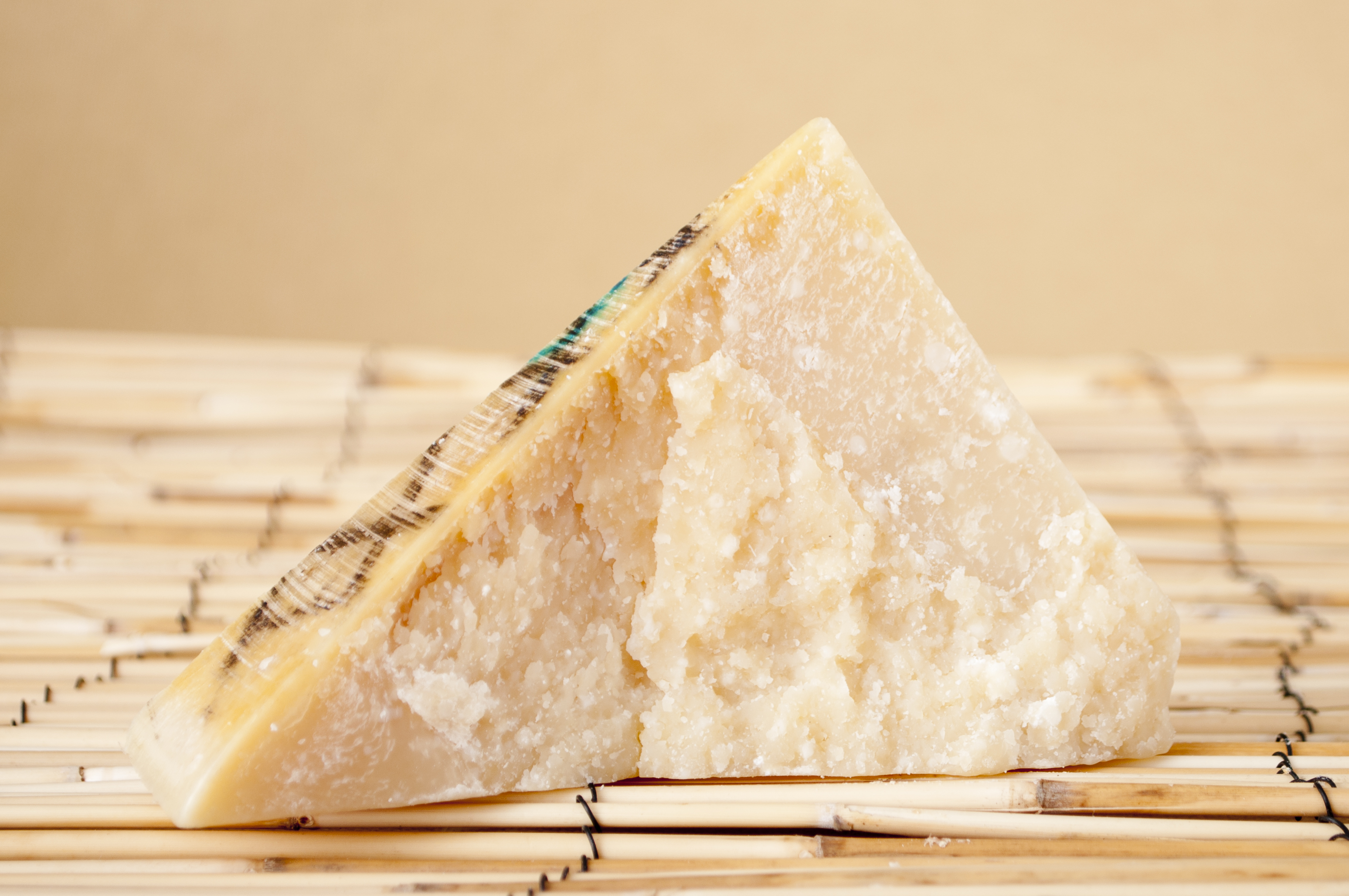 A rugged wedge of Parmigiano-Reggiano Classico
A rugged wedge of Parmigiano-Reggiano Classico
Is there anything better than biting into a piece of hard cheese and encountering those crunchy, crystalline bits scattered throughout? Crackly crunch is one of the best things about Parmigiano-Reggiano (a cheese with no shortage of wonderful attributes), and it is one of the descriptors we hear most frequently from shoppers scouting for Gouda. These crunchy pieces are often mistaken for flakes of salt or taken as a sign that the cheese is drying out, but they are actually little bits of the amino acid tyrosine, and they appear in the cheese as a result of aging.
Casein, the main protein in milk, is composed of several amino acids, including tyrosine. During the cheesemaking process, fats and proteins are bound together in clusters, which clump together and form solid curds. However, as cheese ages, the protein chains begin to deteriorate and unravel, and tyrosine molecules break free. As these rogue molecules collide with one another, crystalline bits fall out of suspension and appear as the crunchy pieces we love so much. (Note, however, that the crystals that appear on the outside of cheeses like Cheddar are deposits of calcium lactate that result from the use of certain starter cultures-- another story entirely.)
 A wedge of Boerenkaas Grand Cru with tyrosine deposits
A wedge of Boerenkaas Grand Cru with tyrosine deposits
The irresistible crunch of these tyrosine pockets is their most obvious benefit, but there is also evidence that they may play a role in boosting your mood. In the olfactory bulb of the brain, which is responsible for detecting odors and taste, tyrosine reacts with an enzyme called tyrosine hydroxylase. These reactions produce several neurotransmitters, including epinephrine (adrenaline), norepinephrine, and dopamine, all of which have profound effects on mood. Epinephrine boosts the flow of oxygen and glucose to the brain and facilitates the “fight-or-flight” response to stressful situations. Norepinephrine affects the amygdala, a part of the brain associated with memory and emotional reactions; it plays a large role in attention and focus and helps ward off depression. Dopamine is a crucial component of the brain’s reward system, which is responsible for providing feelings or pleasure or reinforcement. It’s no surprise, then, that eating aged cheese produces such joy.
When you next find yourself at the cheese counter, if you're in the mood for a little boost, impress your cheesemonger by requesting a cheese with tyrosine deposits-- or stick with 'crunchy bits.' We'll know exactly what you mean.
Author - Jesi Nishibun is a cheesemonger at Formaggio Kitchen Cambridge. When she’s not behind the cheese counter, you can find her with her nose in a cookbook, or experimenting in her home kitchen.

